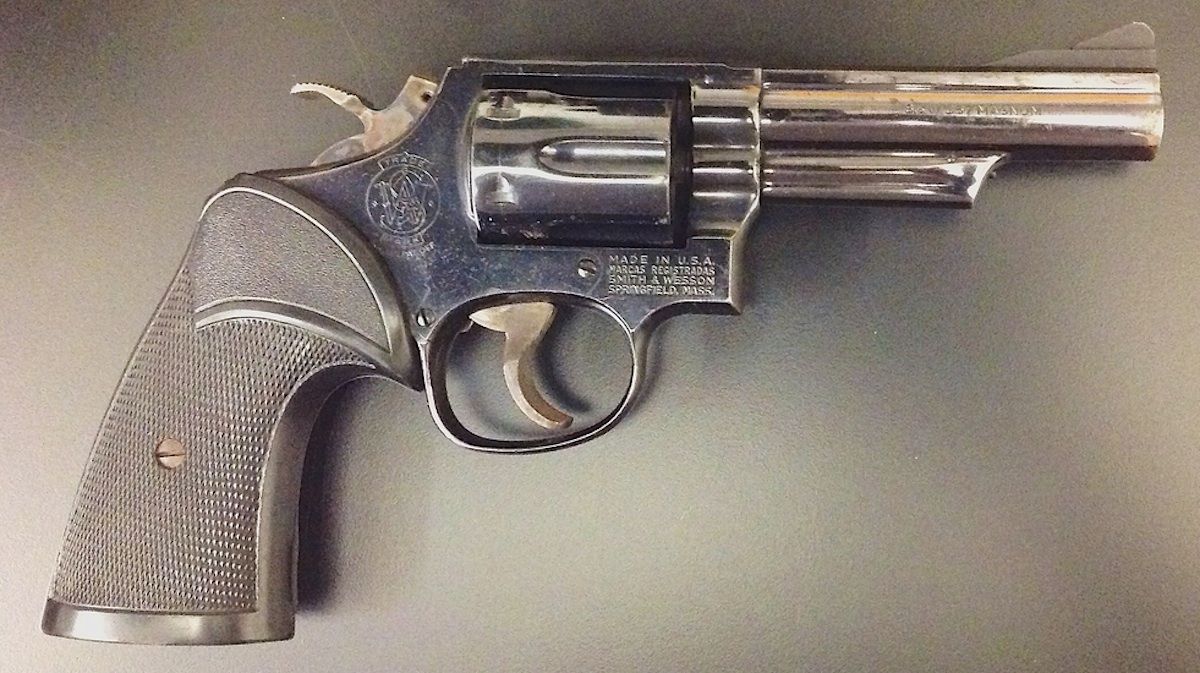Weapons Start Rolling in as City Launches Gun Buyback Program

Photo via Boston Police Department
In less than two hours on Monday, five guns had already been turned in as part of the city’s first gun buyback program in almost a decade.
In a neighborhood where he once played street hockey as a kid, Mayor Marty Walsh kicked off a new campaign with the help of Police Commissioner William Evans, clergy members, and volunteers from local anti-violence organizations to get weapons out of people’s households and into the hands of the police. The effort, called “Your Piece for Peace,” will run indefinitely, and hopefully help curb the spate of gun violence that has cast a shadow over some of the city’s neighborhoods. “Removing guns is at the heart of violence prevention. Every gun turned in is a potential saved life,” Walsh said during a press conference announcing the campaign.
Already, since the buyback program began at noon on Monday, five guns had been turned in to officers, according to Evans. Each person that surrenders a gun to police— either at a designated community drop-off location, or one of the district headquarters—will receive a $200 gift card in exchange, no questions asked. The program will run everyday from noon until 7 p.m. “We need the community’s help,” Evans said, citing recent gun-related incidents in Boston, including the fatal shooting of a nine-year-old boy at the hands of his 14-year-old brother. “There are an awful lot of guns sitting around people’s houses. We need the community’s help to get those guns out of these kids’ hands.”
Evans said that this year alone, Boston officers have taken 136 illegal weapons off of the streets. He said 119 of those guns were handguns, 11 were shotguns, and six were rifles. Last year, in comparison, 667 illegal firearms were removed from various neighborhoods. Gun violence sees a serious uptick in the summer months, police have said in the past. They have also blamed shootings on ongoing gang feuds, arguments over statements gang members post about one another on social media, and late-night parties held in abandoned houses that lead to fights and large arguments.
According to the details of the buyback program, each gun that’s turned into officers will be sent to the Ballistic Unit, where it will be tested to determine if it was recently used in any crimes currently under investigation by the police. If it has, the gun will be retained as evidence, and police will look into the crime. If it’s clean, the weapons will be destroyed at Schnitzer Steel in Everett.
Walsh said in order for the campaign to work and see success, city and state officials will have to work together to combat violence. He said ultimately, the buyback program is just one part of a larger initiative to enact change and quell the amount of shootings in Boston. The other two parts of the puzzle include an upcoming regional summit on gun trafficking, and renewed focus on funding for Boston’s Summer Jobs program.
“We’re here to do much more than launch a single program. This is the first step in a long-term, city-wide mission to prevent violence. The people standing with me today have come together to support each other and better their communities. We are calling on everyone in the city of Boston to join us as we move forward, because everyone has a responsibility in this mission,” he said.

